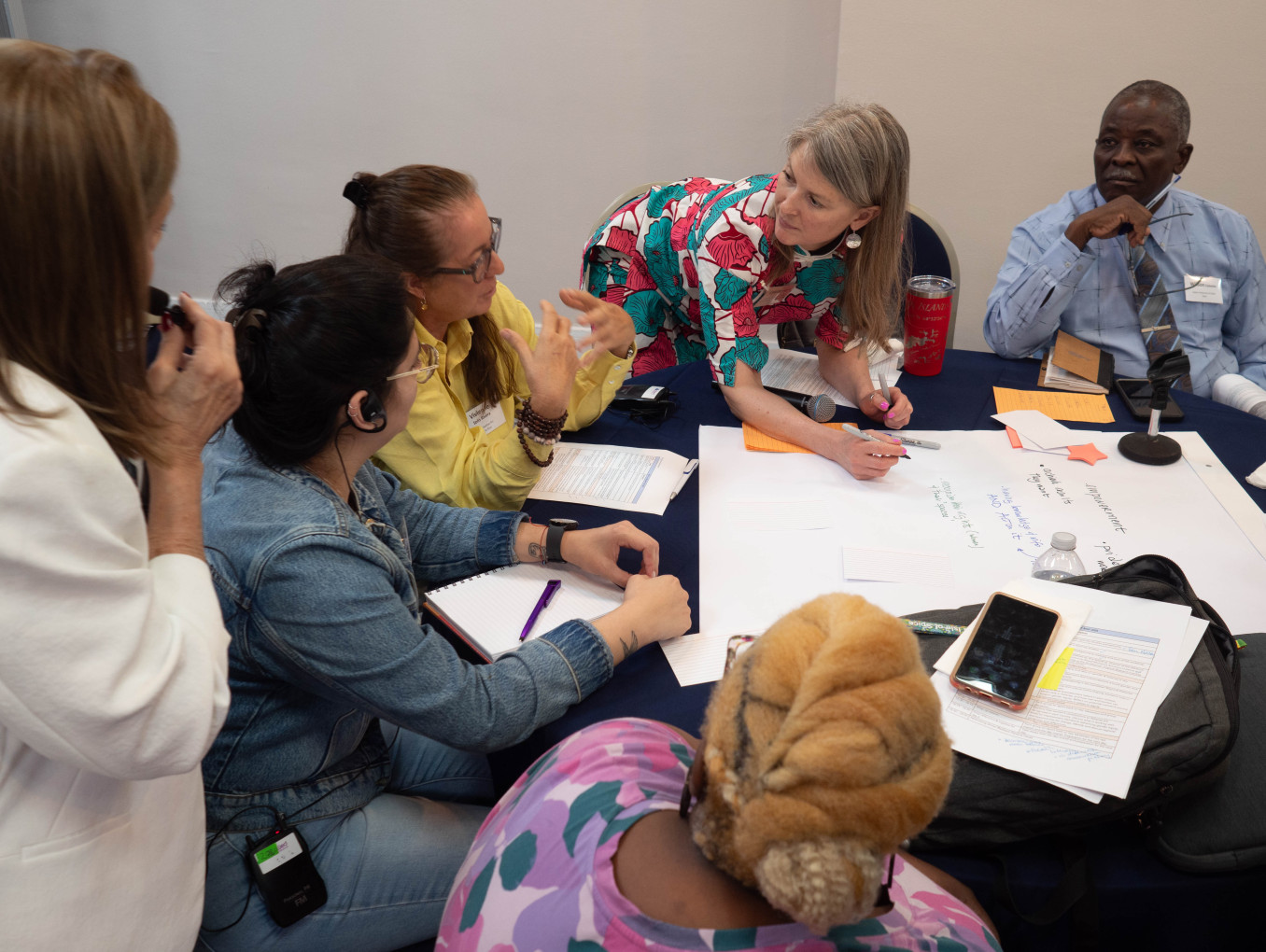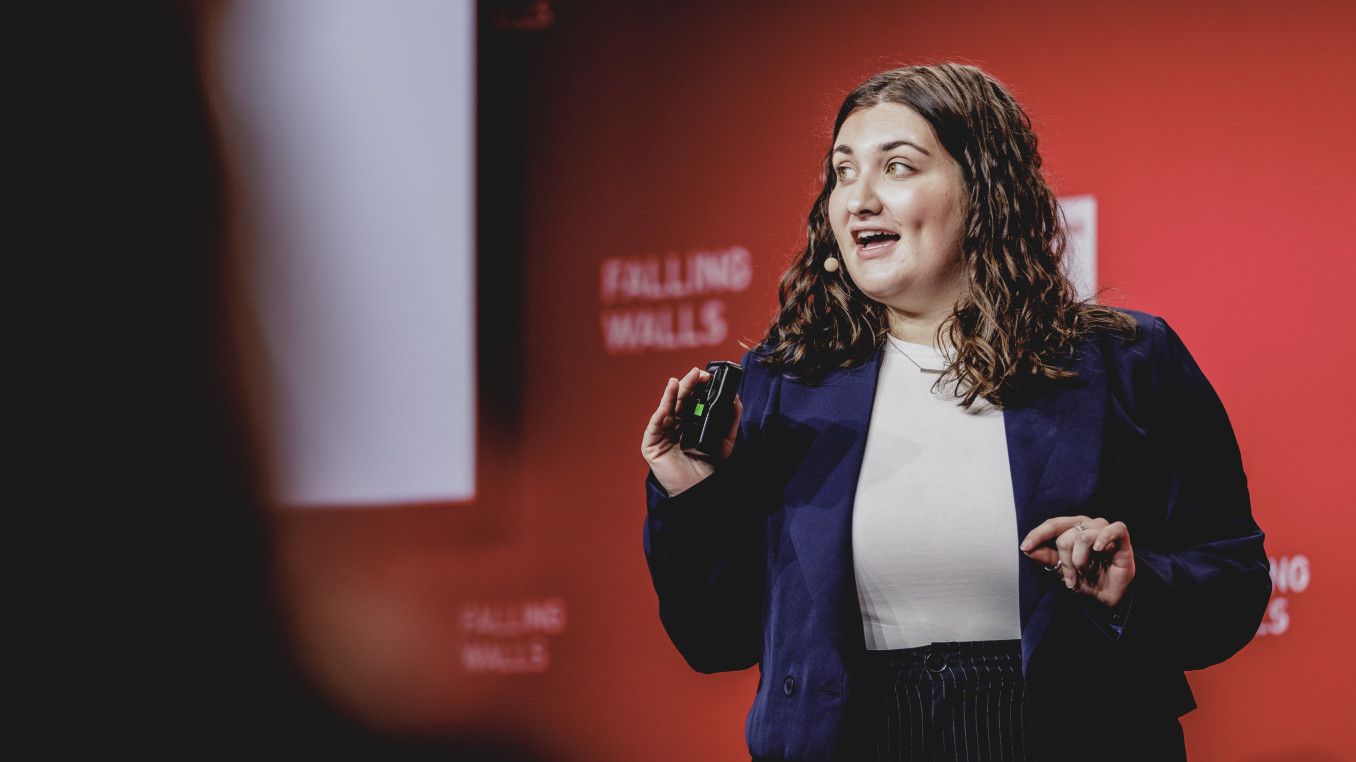Breaking the Wall of Gender (In)Equity in Global Fisheries
Breaking the Wall of Gender (In)Equity in Global Fisheries
Interview with Women's Impact Award Winner 2025 Colette Wabnitz
Dr. Wabnitz is an interdisciplinary marine scientist. Her work explores how social-ecological systems respond to change and contributes to efforts toward more equitable and sustainable development in marine food systems. She works primarily in the Global South, collaborating closely with communities, researchers, governments, businesses and other stakeholders to co-develop solutions that inform both science and policy. She holds research positions at Stanford University, the University of British Columbia and the Stockholm Resilience Centre.
Which wall does your research or project break?
My research seeks to break the wall of gender inequity in the fisheries sector. With partners, I work on making women’s contributions visible in statistics and policy, ensuring women’s voices are included in decision-making processes and creating pathways for their empowerment.
Fisheries, like many natural resource sectors, are widely regarded as male-dominated spaces, with decisions and priorities largely reflecting men’s perspectives. However, women make up around half of the fisheries workforce globally, making substantial contributions across value chains, catching, processing and selling fish, generating billions of dollars in landed catch value, in addition to feeding families, supporting livelihoods and maintaining cultural traditions. Despite these essential contributions, their work often remains unrecognized and undervalued. This invisibility is not simply an oversight: it reflects deeply rooted social and cultural norms, limited policy attention and broader systemic gender gaps. Women, for example, often face restricted access to credit, judicial and financial services and are disproportionately affected by poverty and gender-based violence.
Addressing these inequities is not about “adding women in.” It is about transforming the systems that perpetuate inequality and recognizing that women’s knowledge, leadership and well-being are fundamental to resilient and just fisheries. When decisions are made without considering women’s needs, priorities or rights, we weaken fairness, human rights commitments and undermine the long-term health of fisheries and the well-being of communities.
Today's global challenges make addressing these inequities even more urgent. Overfishing, climate change and compounding social, economic and political shocks are placing greater strains on fishing communities. Women in these communities often face barriers when trying to adapt to these changes, such as exclusion from decision-making spaces or insufficient access to training and finance. Yet they are also among the first to innovate, diversify livelihoods and strengthen community resilience when shocks occur.
While more countries are committing to inclusive processes and supporting gender equity, including through blue economy initiatives, meaningful progress remains slow. Too often commitments have not translated into tangible change and women’s voices remain marginalised.
My project aims to help overcome these challenges by highlighting women’s contributions, amplifying their voices and highlighting conditions for empowerment. By linking fisheries-centered insights with broader human rights and gender equity concerns, it informs pathways for meaningful transformation. Breaking this wall is not only a matter of equity–it is also key to fostering more sustainable, resilient and just futures for the ocean and communities that depend on them.
What is the main goal of your research or project?
This project seeks to increase the visibility of women's contributions to fisheries and strengthen their voice in fisheries governance–recognizing that women are essential to the food security, livelihoods, economies and well-being of communities worldwide.
At its core, this work is built on partnership, working alongside a diversity of knowledge holders, both women and men, to co-develop insights and tools that are grounded in local realities and priorities and can inform more equitable policies and practices. We recognize that advancing gender equality means engaging everyone: restrictive norms can harm both women and men, and shifting these requires inclusive, culturally appropriate approaches.
The project addresses this overarching goal through three interconnected components. First, we’re illuminating both the barriers women face and the opportunities needed to support their leadership and well-being through 28 country-specific fact sheets focused on the Global south. These fact sheets draw attention not only to women’s fisheries-related contributions, but also to systemic gaps at the national level–such as unequal access to education, finance, justice or protection from gender-based violence–that constrain women’s agency more broadly. By situating fisheries within this wider human rights context, the fact sheets provide a fuller picture of both challenges and opportunities for advancing women's empowerment.
Second, we're highlighting where change is needed and where it's already happening. By systematically analysing national fisheries governance documents we’re identifying both the gaps where commitments to gender equity fall short and inspiring policy examples that actively support women’s empowerment and can spark wider change. This creates an evidence base to inspire policy innovation and strengthen accountability.
Third, we're building networks between gender and fisheries institutions through regional workshops that foster dialogue and amplify women's voices in policy conversations. These gatherings create spaces for shared learning and collective action. Importantly, the process ensures that women are not only sources of data, but active participants shaping the solutions that affect their lives, fostering ownership and recognition.
Ultimately, this project contributes to the growing movement toward shifting both narrative and policy from women being overlooked to women being seen, heard and supported as essential actors and leaders. It provides governments, funders and civil society with an evidence base to strengthen governance, investments and actions that advance gender equality, protect human rights and help build more resilient, just and sustainable coastal systems.
What advice would you give to young scientists or students interested in pursuing a career in research, or to your younger self starting in science?
I encourage early career researchers to cultivate their curiosity, be intentionally present, keep an open heart and not shy away from conversations and topics that may feel challenging or difficult. This means getting out into the world, stepping beyond your comfort zones, connecting with others, observing the world around you and pushing your boundaries. Along the way, ask questions, a lot of questions (!), from as many perspectives as possible, and listen actively and openly to the responses and experiences people share.
Trust the process and be patient. Research rarely unfolds in straight lines and setbacks are part of the learning experience. Building connections and establishing trust and understanding also takes time.
Allow yourself to be vulnerable, remain kind and mindful, and hold space for different ways of knowing. Stories matter. A diversity of voices matter. It takes a diversity of partners to co-create and implement solutions that are not only effective and sustainable but also just in the face of today’s ongoing crises.
A research journey is not just about finding answers–it's also about learning to work alongside others in ways that honour their knowledge and experience. I truly believe that the skills developed in listening, collaborating and building trust are just as valuable as any technical expertise gained. Dream boldly about the impact you want to make, but ground that vision in authentic relationships and continuous learning.
What inspired you to be in the profession you are today?
I'm inspired by my childhood in Senegal, where life by the ocean helped me realise the deep connections between people and nature and the hardships and inequities communities face. Guided by strong family values of care and compassion, I’ve carried those experiences into a career dedicated to advancing more just and sustainable futures.
What impact does your research or project have on society?
My project highlights women’s often-overlooked contributions to fisheries while revealing broader systemic challenges and contributes to empowering women and strengthening networks through collaborative research. By linking fisheries-centered insights with human rights concerns and connecting data with policy recommendations, it is informing gender transformative change from local to international levels, contributing to more just and sustainable coastal futures.
What is one surprising fact about your research or project that people might not know?
Many people still think of fisheries as simply ‘men catching fish’. Yet fisheries span whole value chains where women make extensive contributions–from catching, processing and trading fish, to supporting nutrition and sustaining communities–while also facing systemic barriers that make supporting their leadership and voices all the more critical.
What’s the most exciting moment you've experienced over the course of your research or project?
It is hard to pick just one! However, experiencing the energy during our workshops as people co-created solutions and having the opportunity to bring together representatives from fisheries and gender ministries from the same country–often meeting for the first time–was particularly exciting.

